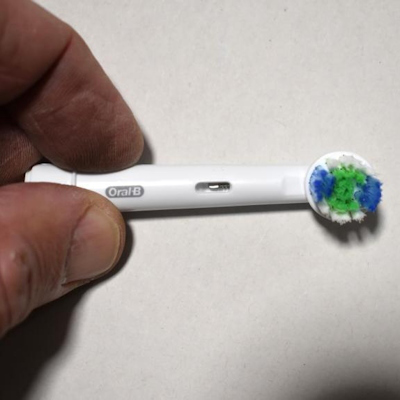When a tooth is missing or needs to be replaced, dental implants are often the first choice made by dental practitioners to rectify the issue.
This process essentially involves clearing out the area the new tooth is to be placed in, if it hasn’t been already, and then putting in some artificial structures meant to mimic the natural ones typically found in the mouth.
The end result is a porcelain tooth securely placed into the mouth that looks, feels, and works just like all of the natural ones in a patient’s mouth. If installed and taken care of properly, a dental implant will last for the entire lifespan of the patient without any complications to speak of.
So, if you are considering this procedure,
it’s important to be educated as to what will occur. Let’s go over the entire
process from beginning to end, so you fully understand what to expect:
The Planning Process
Before you’re put under the knife, your dentist will do several things to prepare the area the tooth will be installed in. Firstly, expect to have a comprehensive examination of your entire set of teeth. Usually, this involves X-rays and other 3D images. Some practices go as far as even to make a model of the teeth to understand better how your particular biology is made up.
The X-rays are useful to the dentist to see if
any nerves may prove problematic during the procedure. Avoiding nerve damage is
one of the biggest things a doctor looks out for, so essentially this part of
the procedure is the doctor getting a lay of the land, in this case, your
teeth.
The dentist will also go over your medical
history to see if you have any conditions or are on any medications that may
complicate the anesthesia process. Certain medications don’t mix with certain
types of anesthesia, so it’s essential that your doctor knows which to use to
keep pain at a minimum.
Finally, the doctor will then discuss the entire treatment plan that will go over how many dental implants are to be installed and any other oral health concerns they think are necessary to mention. After that, you’re ready for the procedure.
The Dental Implant Procedure
Next comes the actual procedure. It is an
outpatient procedure done in multiple steps, which means that after each step
you will be sent home until it is time to see the dentist again.
In the first step, the gums surrounding the
area where the implant is to go are cut open surgically to expose the bone
underneath. After that, a hole is drilled into the bone where a long metal post
will be inserted into the bone. This post will serve as the artificial root of
the tooth. Don’t worry; you won’t feel a thing, thanks to general anesthesia.
If you’re under local anesthesia, expect this
part of the procedure to be mildly uncomfortable at worst, but not painful. If
you aren’t completely numbed by the time the dentist begins, you should let
them know so they can administer more if necessary or give the anesthesia more
time to kick in.
Once the post is inserted the gums are
stitched up, and the first part of the procedure is finished. Sometimes a
denture is provided to the patient that can fill in the gap while they go about
their day.
There is some initial rawness and mild pain
associated with having the gums stitched, but it is relatively minor. There is
now a waiting period where the gums are allowed to heal, and bone starts to
grow back around the metal implant post. This part of the process may take
several months but is entirely necessary for the metal root to be secure inside
your jawbone.
Once that is complete, the abutment will then be put on the implant. Sometimes this is completed in the first step, sometimes not. The abutment gives the crown (false tooth) foundation to sit on, at the final step. Whether or not the abutment is added in the first step is typically up to the patient, the abutment will be visible above the gum line while the bone grows around the metal post, so if the patient isn’t comfortable with that, the dentist will typically incorporate it into the second step.
To put on the abutment, the gums are reopened to expose the metal post. From there, the abutment is placed onto the metal post, and the gums closed around the abutment and the abutment itself will sit above the gumline.
The gums will then be allowed approximately 14
days to heal before the false tooth, or crown will be attached.
After this impressions will be taken of your
mouth and a false tooth created. It will be up to your discretion to choose
whether you would like a permanent or removable. Once the jaw is strong enough
to accommodate the artificial tooth, it is then attached to the abutment.
Post Procedure
Now that the procedure is finished, the
recovery process begins. There is usually some minor pain associated with this
stage in the dental implant process, but it can typically be managed with only
over the counter pain medication taken on an as-needed basis. Patients can expect to be resuming their
normal activities within a day or two and complications at this stage are rare.
Be sure to talk to your dentist about what you
can and cannot eat while you are in recovery. Most alcohol, smoking, hard
foods, and sipping through a straw are frowned upon, as they may tear stitching
in the mouth.
Conclusion
Overall, the pain associated is very low, most
dentists consider getting dental implants to be less painful than tooth removal
based on patient reports. The process itself may take several months to
complete, with the lag time between the two steps being the longest period, but
there is relatively little disruption to the patient’s daily life, and once the
procedure is completed they’ll be able to use their new teeth within a few
days.
The post What to Expect During a Dental Implant Procedure appeared first on Dental Smiles Unlimited.
Source: https://www.dentalsmilesunlimited.com/what-to-expect-during-a-dental-implant-procedure/



